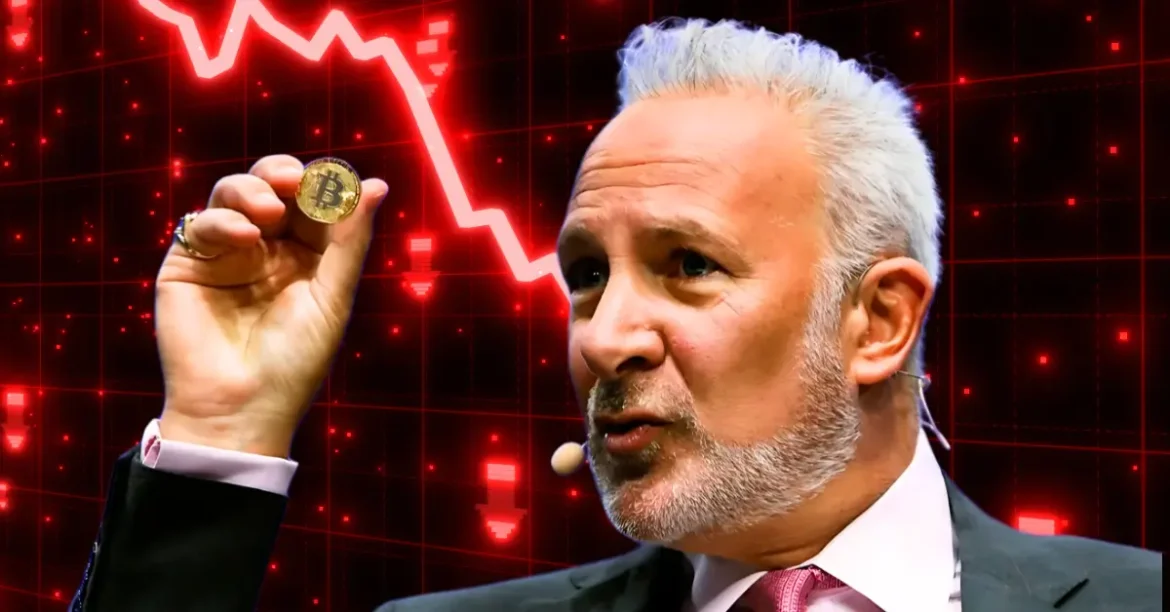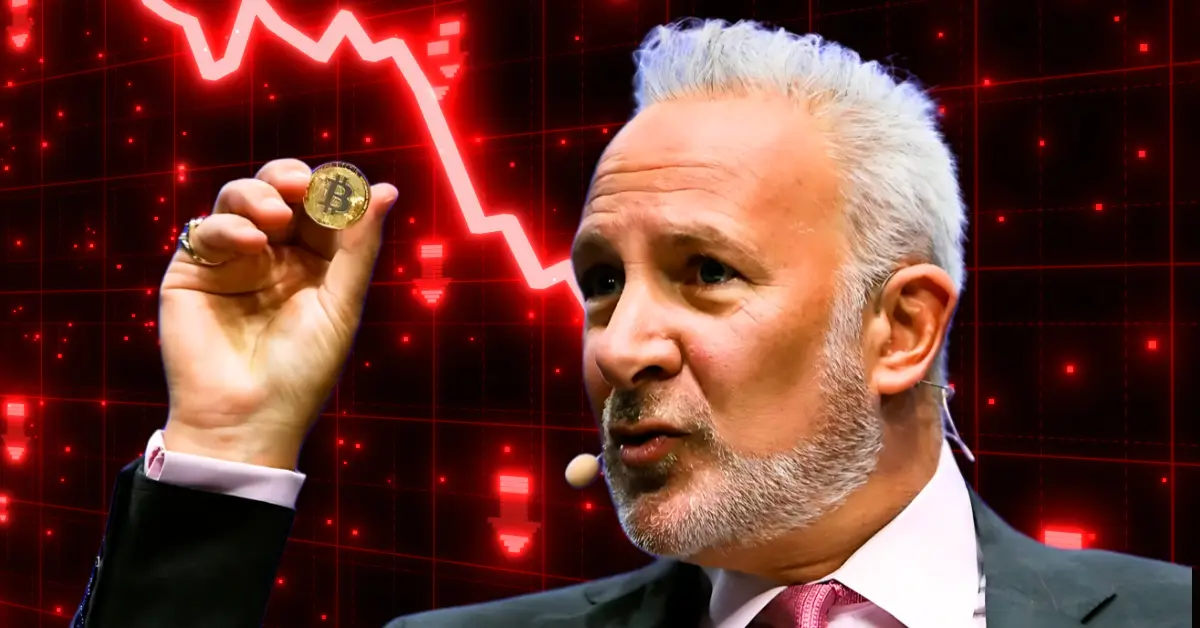Peter Schiff vs. JD Vance: The Debate Over Bitcoin and Wealth Creation
In recent discussions stirring the cryptocurrency community, a notable clash emerged between Senator JD Vance and economist Peter Schiff regarding Bitcoin’s economic impact, particularly its role in wealth creation. This report delves into their contrasting viewpoints and the broader implications for how we understand Bitcoin’s value and financial role.
Context: The Bitcoin 2025 Conference Debate
At the Bitcoin 2025 conference in Las Vegas, Senator JD Vance asserted that Bitcoin had generated significant wealth. Vance’s statement aligns with the bullish perspective held by many in the crypto community who view Bitcoin not only as a store of value but as a driver of new economic opportunities and wealth accumulation.
Peter Schiff, a well-known critic of Bitcoin and advocate for precious metals like gold and silver, responded swiftly and critically to Vance’s claims. Schiff challenged the notion that Bitcoin has created any new wealth, instead framing the cryptocurrency experience as one of wealth transfer rather than wealth creation.
Understanding the Claims: Wealth Creation vs. Wealth Transfer
Vance’s position implies that Bitcoin’s widespread adoption and price appreciation reflect genuine value creation, adding to the overall wealth in the economy. Proponents argue that Bitcoin’s decentralized nature, finite supply, and adoption as a digital asset contribute to generating new wealth by expanding financial freedoms and investment opportunities.
Schiff disputes this by pointing out that Bitcoin tokens themselves do not embody intrinsic wealth or productive capacity. His argument centers on the idea that the fluctuating price of Bitcoin reflects speculative transfers of existing wealth from late buyers to early adopters who profit from price appreciation. In this framing, the net economic value produced is negligible, as Bitcoin does not produce goods, services, or income streams akin to traditional assets.
Key Points From Peter Schiff’s Critique:
– No New Wealth Is Created: Bitcoin tokens do not represent tangible wealth or productive economic assets; they are digital tokens without intrinsic value.
– Massive Wealth Transfers: Gains made by some holders come largely from wealth lost by others—particularly those buying at higher prices.
– Gold and Silver as Superior Inflation Hedges: Schiff advocates for precious metals, emphasizing their historical roles as stores of value and inflation hedges, contrasting them with Bitcoin’s riskier profile.
– Bitcoin’s “Digital Risk” vs. “Digital Gold”: Schiff denies Bitcoin’s characterization as “digital gold,” labeling it instead as a highly volatile and speculative asset lacking intrinsic stability.
Broader Implications of This Debate
The discussion between Vance and Schiff highlights a fundamental tension in how cryptocurrencies are perceived in economic terms. Is Bitcoin a transformative wealth creator reshaping financial systems and fostering new economic growth—or is it primarily a speculative vehicle redistributing existing money within the system?
This debate also reflects deeper questions about what constitutes real wealth. Traditional commodities like gold are valued for tangible qualities – rarity, durability, and industrial applications – and longstanding roles as monetary assets. Bitcoin’s value, on the other hand, is more abstract, dependent on network effects, trust, and adoption.
Moreover, Schiff’s critique touches on risks often overlooked amid positive hype: market volatility, lack of intrinsic income generation, and potential losses from mismanagement or loss of access to digital wallets. Schiff himself has publicly shared personal experience related to losing access to his Bitcoin wallet, emphasizing practical downsides.
Counterpoints: Supporters Respond to Schiff’s Criticism
Bitcoin advocates argue that limiting wealth creation to physical or income-generating assets disregards modern digital value paradigms. Bitcoin’s decentralized network offers unique financial sovereignty and programmable money features that conventional assets cannot match. Additionally, widespread adoption can spur new technological investments, services, and innovation building indirect wealth.
Furthermore, the concept of wealth creation in financial markets often includes capital appreciation and increased liquidity, aspects Bitcoin provides effectively. From this perspective, Bitcoin contributes to an evolving economic landscape where value is increasingly represented digitally.
Conclusion: A Complex Landscape of Value and Perception
The divergence between JD Vance’s optimism and Peter Schiff’s skepticism surfaces a nuanced conversation about Bitcoin’s economic role. While Vance champions Bitcoin’s ability to create new financial opportunities and wealth, Schiff cautions that in reality, Bitcoin primarily reallocates existing money without generating true new value.
This debate encapsulates broader uncertainties around cryptocurrencies as their role matures within global finance. Understanding Bitcoin’s implications requires weighing its revolutionary potential against recognizable economic fundamentals and risks.
Ultimately, perspectives on Bitcoin’s capacity to create wealth veer sharply based on underlying assumptions about value, investment, and economic productivity. For investors and policymakers, recognizing these contentious viewpoints is crucial in shaping measured and informed strategies in the evolving crypto era.





